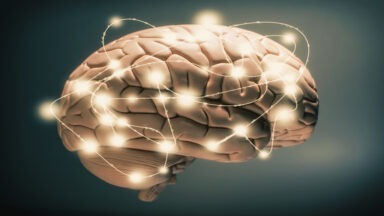Plant Consciousness; Do Plants Sense, Feel, and Communicate?

Just like the love we receive from our mothers and grandmothers, nature is a life-giving, lovable, and powerful healer. Is this interconnectedness and interdependence born from nature’s pre-engineered biology, or is there a type of plant consciousness? Are they sentient beings, with the ability to sense, feel, fathom, and communicate? The answer to this is more remarkable than you might imagine.
When we wander in the forest, we might be conscious of the abundant life around us. If we allow ourselves the opportunity, we might understand that when we walk among flowers and trees, our bodies, minds, and hearts are healed in some way. As we absorb the luscious beauty around us, somehow, with limited effort, we feel cleansed from head to toe. This is not just a feeling, it’s often a reality.
We see a robust and majestic pine tree, drenched in sunlight and surrounded by wet earth. Thirty feet away we see its equally vital twin in the shade, surrounded by dry soil. Scientists say that it’s not only that the twin tree has roots that will reach to the nearby wet ground for sustenance, it’s also that these two trees share nutrients and messages via an intricate underground network. This is why the tree in the shadows is as healthy as her sunlit neighbor.
“You know what a lima bean does when it’s attacked by spider mites? It releases a volatile chemical that goes out into the world and summons another species of mite that comes in and attacks the spider mite, defending the lima bean. While we have consciousness, toolmaking, and language, plants have biochemistry.” — Michael Pollan
Can Plants Feel Pain?
As far back as the 1980s, researchers like Frank Kühnemann at Germany’s Institute for Applied Physics at Bonn University, have worked to understand how plants communicate. It’s not airy-fairy curiosity that gave birth to this pursuit; it originally began to help farmers understand why their crops soured when stored in local silos or during intercontinental transport to foreign nurseries.
Originally developed by scientists at the Catholic University of Nijmegen in the Netherlands and later improved-upon by The Institute for Applied Physics, a unique acoustic device was built to evaluate plants’ stress levels by measuring the energies of ethylene gas molecules provoked with lasers.
During harvesting, cultivation, drought, and after exposure to salt, poor ozone quality and cold air, plants emit ethylene gas. While they emit the gas when being eaten, attacked, or cut, they also emit the same levels of ethylene when their fruit is ripe.
That amazing smell after you cut your lawn?
The result of the grass reacting to being cut.
The German acoustic device determines the stress level of the plant by converting the levels of ethylene gas into corresponding sound waves. This helps us understand the levels of “pain” and stress the plants are experiencing.
Acoustics-based research surrounding plants has given farming a boost. More specifically, it’s helped farmers understand that storing apples with other crops can damage the other crops. This research also points to the stress that plants experience during travel, given certain types of plant-based traveling companions.
The results of these experiments and many since have shown us plants can respond and react to their experiences. They can also remember and learn from their experiences and can make adjustments based on what they’ve learned. Plants emit gases and chemicals into the soil around them and send messages through their roots to nearby plants. Suffice it to say that the world of plants is mind-blowing.
“Never go to a doctor whose office plants have died.” — Erma Bombeck
Do Plants Have Feelings?
When hearing that plants react and feel “pain,” your heart might fill with compassion and empathy. You might want to start a new organization aimed at protecting plants from cruelty! Certainly a noble pursuit.
While there are similarities among humans, animals, and plants, it’s important to consider that a plant’s purpose and systems are mostly dissimilar to those of humans and animals. When a human feels pain, they cry. When plants are cut or stored alongside rotting apples, they emit ethylene gas. This doesn’t mean the plant doesn’t feel pain, it means we have a lot to learn about the nature of plants, especially as it relates to the notion of suffering.
It’s probable that plants don’t suffer in the same way humans and animals suffer and plants don’t feel the same way humans and animals feel. It’s certainly a lovely notion that at least one part of the Earth’s ecosystem might be saved from a measure of suffering.
While humans, animals, and plants all have unique systems for connecting and each has a distinct cry for help, plants don’t have the same cortex and therefore, do not think and feel in the same way humans and animals do.
It’s within thinking that emotions arise. And it’s during the expression of emotions that we understand when a creature is in pain. That said, plants clearly have their own thinking and feeling systems, many of which we have yet to understand.
It begs the question, what is a vegan to do? If my cucumber can feel my bite, should I become a Breatharian? For now, vegans should probably continue to eat vegetables, but feel free to be more loving and grateful when you bite into them!
Can Plants Communicate?
Although it started with the exploration of what seemed to be an insane premise — plants, just like humans and animals, can be shy or aggressive, connected or reclusive, and givers, receivers, or both. Upon certain conditions, plants will also warn their neighbors about impending attacks, problems, and the abundance and depletion of nutrients within the plant’s network.
Science seems to agree. According to Velemir Ninkovic, an ecologist at the Swedish University of Agricultural Sciences, “Plants … use signals to avoid competing situations and to prepare for future competition.”
By all accounts, it appears that plants are resourceful, proactive, communal and most certainly communicative.
“God sleeps in the minerals, awakens in plants, walks in animals, and thinks in man.” — Arthur Young

Are Plants Sentient?
According to Kenneth Worth, Ph.D., “Plants produce serotonin, GABA, and melatonin, which act as hormones and neurotransmitters in animal brains, though it’s not yet known what they do in plants. Intriguingly, drugs such as Prozac, Ritalin, and amphetamines can disrupt these “neurotransmitters” in plants.”
Putting all the pieces together, here’s what plants can do:
- Grow with proper nutrition
- Send messages and friend requests
- Sense the need for nutrients in other plants
- Share nutrients with other plants, even as far as 30 meters away
- Send out electric distress signals
- Sense light
- Encourage neighbors to grow in ways that will help save them
- Communicate using gases and chemical secretions in the soil
- Emit measurable sounds
- Send out signals to denote proximity to other plants
- React, Remember & Learn
- Produce Serotonin, GABA & Melatonin, which act like hormones in human beings
Related to the above, if we can give plants even the slightest benefit of the doubt, it must be probable that plants are sentient.
What Do You Feel Around Plants?
While the scientific and hippie ideologies surrounding plants might not always be aligned, what’s most important is what we each feel and sense around plants. Do you talk to your plants? Do you touch them with love? Whether you’re an academic researcher, holistic healer, or magical wizard living in another realm, plants give us oxygen, life, colors, and vibrations, all of which provide measurable benefits.
Plant Research in India and China
In 1962, Dr. T.C. Singh, the head of Botany at an Indian University, concluded that plants exposed to music experienced accelerated growth. He also found that the violin provided the most value in this area. Other scientists over time have concluded that classical music has a profound effect on plants’ health. Dr. Singh also found that barefoot, traditional Indian dancing in the same room as the plants caused them to flower two weeks earlier than previously recorded.
Physicist and Indian plant physiologist Sir Jagadis Chandra Bose, concluded after decades of researching the effects of environments on plants that, like humans, plants are sensitive to noise and nurturance. He also concluded that plants feel pain and understand affection.
In China’s Fujian Province, farmers claim their crop yields increased and grain size significantly improved when using sound systems to play Buddhist chants in and around their fields.
It seems undeniable that plants are sensitive in similar ways to humans and animals. Even with gaps in scientific research, there appears to be consensus around the notion that plants sense, feel, fathom, and communicate.
It’s humbling and exciting to learn about the expansive nature and abilities of plants. It’s also surprising and illuminating to learn about the parallels between plants and human/animal behaviors.
Enjoy and connect with your plants, receive their rich abundance when wandering in the forest, and share your love with all living beings in your life.
How to Remember Your Past Lives: 3 Ways to Access Past Life Memories

Sometimes life feels familiar in ways that are hard to explain. You meet someone and feel you’ve known them forever. Or you travel somewhere new and something deep inside stirs, like a memory you can’t quite place. Maybe these are traces of memories of past lives, or maybe they’re just intuition. Either way, they’re worth paying attention to.
Patterns often repeat themselves. Unexplained fears. Sudden talents. Relationships that circle back to the same lessons. These moments might be echoes from a previous life still influencing your present life.
Exploring past life experiences is not only about curiosity. It can be about understanding how your soul’s history continues to shape who you are. You might not find clear answers at first. Insights rarely arrive as complete stories. They show up in fragments, symbols, and emotions. Sometimes they make sense only later.
Table of Contents
- Can You Access Past Life Memories?
- How Past Lives Might Shape Your Present Life
- Signs You Might Have Lived Before
- Three Ways to Explore Past Life Memories
- Making Sense of What You Find
- The Story of Matías De Stefano
- Living With Past Life Insights
Can You Access Past Life Memories?
The idea of reincarnation suggests that human beings live more than one lifetime, each one leaving behind energetic and emotional imprints. Most people don’t consciously recall memories of previous lives, but certain practices can help open the door to them. Techniques like deep meditation, past life regression, or exploring the Akashic Records can reveal glimpses that feel older than this lifetime.
For some, these insights appear as flashbacks, vivid dreams, or waves of emotion. For others, it’s just a subtle pull toward a person, a place, or even a time period. In my experience, it’s unpredictable. You can’t force it, and that’s often what makes it meaningful.
The process takes patience. Sometimes fragments come together slowly, piece by piece. You might feel a sensation before you see an image, or recognize a lesson before you know its origin.
How Past Lives Might Shape Your Present Life
Emotional patterns often carry forward from former lives. Dr. Ian Stevenson, a psychiatrist who studied young children recalling memories of past lives, documented cases where birthmarks matched fatal injuries described in these memories. Whether you see this as scientific or spiritual, it’s hard to ignore the consistency of such reports.
These imprints may not prove anything, but they do suggest continuity between lives. A certain fear, gift, or attraction could reflect something unresolved or unfinished from a previous life. Recognizing these connections can bring clarity and healing in current life.
I once worked with someone who had a deep fear of the ocean. Through past life regression therapy, guided by a trained hypnotist, she recalled a drowning incident from what felt like another lifetime. The memory came in pieces, more feeling than image. Still, acknowledging that connection helped her let go of the fear over time. Experiences like this show how understanding past life experiences can release something held deep in the subconscious.
Signs You Might Have Lived Before
Even if you never access vivid memories, signs of former lives can appear in subtle ways:
- A powerful connection with someone you’ve just met
- Fascination with a specific era or culture
- Unexplained fears or emotional triggers
- Skills or talents that seem to come naturally
- Dreams or visions that feel oddly specific
Most people notice just one or two of these patterns. Others find the signs everywhere once they start paying attention. Sometimes a single clue opens a path toward remembering more.
In my experience, recognizing a familiar emotion or attraction can be just as revealing as a full flashback. It’s less about proving a past and more about noticing what the soul is trying to show you now.

Three Ways to Explore Past Life Memories
1. Deep Meditation
Deep meditation is one of the simplest ways to open the mind to memories of past lives. The key is to relax and observe whatever comes up without judgment. Images, sensations, or feelings may surface. Some might seem random. Others might carry a weight that feels ancient.
Before beginning, it can help to set a quiet intention, such as:
“I’m open to seeing what my soul wants me to understand.”
Then you simply allow the experience. Don’t chase it or analyze too soon. In my experience, the most authentic insights from former lives come gently, not dramatically. Even a fleeting moment of recognition can hold meaning.
2. Past Life Regression Therapy
Past life regression therapy uses relaxation and visualization to uncover memories of previous lives stored in the subconscious. A trained hypnotist guides you into a meditative state, helping you move beyond surface thoughts. Some people experience vivid scenes or sensations that feel like a flashback to another existence.
Whether these experiences are literal or symbolic, they often reveal emotional truths. They can explain patterns that don’t make sense in your present life or help resolve fears that seem to have no origin.
I once met someone who had always struggled to speak publicly. During past life regression, she recalled a lifetime where her voice had been silenced by strict authority. That realization gave her the courage to use her voice more freely in her current life. Even if symbolic, the experience carried emotional truth.
3. Exploring the Akashic Records
The Akashic Records are said to contain every thought, action, and experience the soul has ever had. Accessing them, either independently or through a reader, allows you to explore lessons across past lives and recurring patterns of growth.
When people tap into these records, they often describe sensations of recognition more than visual imagery. Insights come as feelings, intuitive words, or brief impressions. You might discover why certain people or challenges keep reappearing, or how your soul’s history is guiding your spiritual awakening.
Even a few minutes of connection can shift how you see your current life. These insights don’t have to be dramatic to be meaningful.
Integrating What You Discover
Exploring past life memories is not about getting lost in the past. It’s about using what you find to better understand your choices now. A glimpse into a previous life might explain an ongoing struggle or illuminate a hidden strength.
In some cases, the lesson might be an emotional release. In others, it could be creative inspiration or reconciliation. What matters most is how the experience influences your perspective in the present life.
It helps to write down what you recall after meditation or regression. Don’t try to label everything as fact or fiction. Treat it as information from your inner world, something your soul is offering for reflection.
The Story of Matías De Stefano
Spiritual teacher Matías De Stefano has captivated audiences with his extraordinary ability to recall multiple past lives since childhood. Unlike those who access memories through regression, Matías’ recollections emerged naturally and in vivid detail, spanning ancient civilizations, planetary histories, and metaphysical dimensions.
Through his Gaia podcast and original series The Journey of Remembering, Matías shares how his memories shaped his understanding of the universe and his role in the collective spiritual awakening. His story offers profound insight into how connecting with the memories of past lives can guide us toward purpose, unity, and a deeper remembrance of who we truly are.
Just as with Matías’s experience, remembering past lives invites us to explore the continuity of consciousness and to see life as an unfolding journey rather than a single chapter. Whether through meditation, past life regression, or the Akashic Records, these methods can open the door to self-discovery and healing.
Ultimately, the value of these experiences lies not in proving their accuracy but in how they help us grow, evolve, and live our present life with peace, clarity, and a renewed sense of purpose.
Living With Past Life Awareness
Understanding past life experiences and exploring the soul’s history is not about proof or persuasion. It’s about awareness. Insights from past lives can explain repeating patterns, clarify emotional attachments, or simply remind you that growth is continuous.
Whether through deep meditation, past life regression, or the Akashic Records, each method opens a doorway to reflection. Sometimes that reflection is subtle, almost imperceptible. Other times it feels profound, as if you’ve remembered something essential about who you are.
Ultimately, remembering past lives isn’t about living in the past. It’s about carrying forward what matters most into the present life. Each glimpse, each small understanding, becomes part of how you live more consciously now.





































